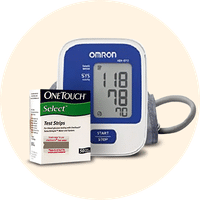Optiqmega Capsule

Rs.1879for 1 strip(s) (10 capsules each)
Available in other variants
food interaction for Optiqmega
alcohol interaction for Optiqmega
pregnancy interaction for Optiqmega
lactation interaction for Optiqmega
food
alcohol
pregnancy
lactation
Optiqmega Capsule may be taken with or without food, but it is better to take it at a fixed time.
None
None
CAUTION
Caution is advised when consuming alcohol with Optiqmega Capsule. Please consult your doctor.
CAUTION
Information regarding the use of Optiqmega Capsule during pregnancy is not available. Please consult your doctor.
CONSULT YOUR DOCTOR
Information regarding the use of Optiqmega Capsule during breastfeeding is not available. Please consult your doctor.
CONSULT YOUR DOCTOR
SALT INFORMATION FOR Optiqmega
Coenzyme Q10(100mg)
Uses
Coenzyme Q10 is used for nutritional deficiencies.
How it works
Coenzyme Q10 is a vitamin-like substance that provides essential nutrients.
Common side effects
Nausea, Diarrhea, Heartburn, Loss of appetite
Omega-3 fatty acid(300mg)
Uses
Omega-3 fatty acid is used in the treatment of nutritional deficiencies.
How it works
Omega-3 fatty acid maintains good health and nutrition (mainly heart, blood vessels, brain and eye).
Common side effects
Nausea, Vomiting, Flatulence
Vitamin D3(400IU)
Uses
Vitamin D3 is used in the treatment of Vitamin D deficiency and osteoporosis.
How it works
Vitamin D3 is a form of vitamin D. It raises vitamin D levels in your blood. This in turn raises calcium levels in your blood by helping you absorb more calcium from food.
Common side effects
Increased calcium in urine, Loss of appetite, Increased calcium level in blood, Itching, Rash, Urticaria, Facial swelling, Genital edema, Dry skin, Nail disorder, Erythematous rash, Decreased prothrombin level in blood, Difficulty in swallowing, Weakness, Fatigue, Sleepiness, Headache, Dryness in mouth, Metallic taste, Nausea, Vomiting
SUBSTITUTES FOR Optiqmega
No substitutes foundExpert advice FOR Optiqmega
- Always consult your doctor before taking CoQ10 as a supplementary therapy.
- Precautions must be taken if you are suffering for liver problems.
- Diabetic patients on CoQ10 supplementation must closely monitor their blood sugar levels for sudden drop is sugar levels.
- Patients suffering from high blood pressure must also use CoQ10 with caution and monitor their blood pressure regularly.
Frequently asked questions FOR Optiqmega
Coenzyme Q10
Q. Who should take Coenzyme Q10?
You should take Coenzyme Q10 only if doctor has advised you. Coenzyme Q10 has a beneficial role when taken with other medicines in patients with heart failure, angina, high blood pressure, Parkinson’s disease, and migraine. It may also be advised in patients with Coenzyme Q10 deficiency, HIV/AIDS or in patients taking adriamycin. Coenzyme Q10 is an additional therapy to the prescribed treatment. Do not substitute Coenzyme Q10 for actual treatment required for these particular diseases.
Q. Is Coenzyme Q10 bad for the liver?
Coenzyme Q10 may cause an increase in liver enzymes. Therefore, if you have liver disease, inform your doctor before you start taking this medicine. Other common side effects of Coenzyme Q10 include sleeplessness, rashes, nausea, upper abdominal pain, dizziness, sensitivity to light, irritability, headaches, heartburn, and fatigue.
Q. Can Coenzyme Q10 cause sleeplessness?
Yes, Coenzyme Q10 may cause sleeplessness, however, it does not affect everyone. Consult your doctor if you have difficulty sleeping after taking Coenzyme Q10.
Omega-3 fatty acid
Vitamin D3
Q. Is it better to take Vitamin D3 at night or in the morning?
You can take Vitamin D3 at any time of the day, morning, or night. However, there is limited information available about the best time to take Vitamin D3. Take it exactly as advised by your doctor.
Q. What are the benefits of taking Vitamin D3?
Vitamin D3 is important for maintaining bone health, support the health of the immune system, brain, and nervous system. It also regulates insulin levels and is also important for a healthy heart and blood vessels.
Q. How should Vitamin D3 be taken?
Vitamin D3 should be swallowed whole with water and should not be crushed or chewed. It is advised to take it with the main meal of the day to increase its absorption.





















